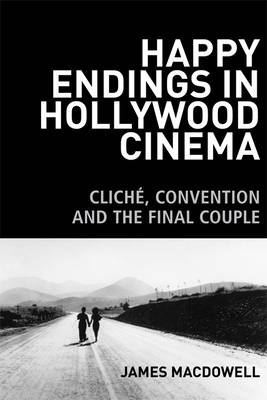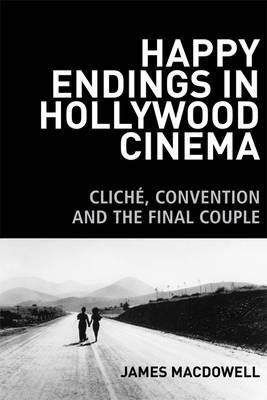
- Afhalen na 1 uur in een winkel met voorraad
- Gratis thuislevering in België vanaf € 30
- Ruim aanbod met 7 miljoen producten
- Afhalen na 1 uur in een winkel met voorraad
- Gratis thuislevering in België vanaf € 30
- Ruim aanbod met 7 miljoen producten
Happy Endings in Hollywood Cinema
Cliché, Convention and the Final Couple
James MacDowellOmschrijving
The Hollywood 'happy ending' has long been considered among the most famous and standardised features in the whole of narrative filmmaking. Yet, while ceaselessly invoked, this notorious device has received barely any detailed attention from the field of film studies.
This book is thus the first in-depth examination of one of the most overused and under-analysed concepts in discussions of popular cinema. What exactly is the 'happy ending'? Is it simply a cliché, as commonly supposed? Why has it earned such an unenviable reputation? What does it, or can it, mean? Concentrating especially on conclusions featuring an ultimate romantic union - the final couple - this wide-ranging investigation probes traditional associations between the 'happy ending' and homogeneity, closure, 'unrealism', and ideological conservatism, testing widespread assumptions against the evidence offered by a range of classical and contemporary films.
Key Features:
Defines key features of the Hollywood 'happy ending' through detailed textual analysis and theoretical debate.Traces the historical development of the scholarly approaches taken towards the cinematic 'happy ending' Reassesses the concept of cinematic closure and its relationship to genre, ideology and 'unrealism'
Specificaties
Betrokkenen
- Auteur(s):
- Uitgeverij:
Inhoud
- Aantal bladzijden:
- 224
- Taal:
- Engels
Eigenschappen
- Productcode (EAN):
- 9780748699773
- Verschijningsdatum:
- 28/11/2014
- Uitvoering:
- Paperback
- Formaat:
- Trade paperback (VS)
- Afmetingen:
- 152 mm x 231 mm
- Gewicht:
- 385 g

Alleen bij Standaard Boekhandel
Beoordelingen
We publiceren alleen reviews die voldoen aan de voorwaarden voor reviews. Bekijk onze voorwaarden voor reviews.











